A GUIDE TO HIGHER EDUCATION



Just a few reasons to further your dance education with the RAD…
At the Royal Academy of Dance, we understand the importance of having qualified, well-informed and inspirational dance teachers. For those considering a career in teaching, the RAD can help you make a difference and shape a future generation of dancers and dance teachers.
Dance teachers are at the heart of what we do and with the RAD operating in over 85 countries with 36 international offices, and a strong
Teaching is a highly transferable skill and our graduates have gone on to teach all over the world.
As a student you gain access to the professional membership body of the RAD which, in addition to a global support network, ensures you have a competitive advantage from day one.
Most of our students are eligible for registration as teachers with the RAD on completion of their programme.
global membership, we are a well-established teacher training and education organisation.
We have students from all around the world studying with us on universityvalidated and RAD programmes of study, with one of our programmes offered in nine different languages.
“Students develop as performers, teachers and creative artists.”
Visit our London headquarters! Find out everything you need to know about studying with us by attending one of our Open days in 2024.
Find out more at radprospectus.info
faculty@rad.org.uk
+44 (0)20 7326 8086
Photo by Tim Cross Royal Academy of Dance® is a charity registered in England and Wales No. 312826
Our programmes are designed to meet your immediate and future aspirations as a dance teacher and reflect our international reputation for excellence in dance teacher education.
• BA (Hons) Ballet Education
• BA (Hons) Dance Education
• MA in Education (Dance Teaching)
• Certificate in Dance Teaching (Ballet)
• Licentiate of the Royal Academy of Dance
• Professional Dancers’ Graduate Teaching Diploma Find out
Our open days are exciting, welcoming and activity-packed. Visit our accommodation and explore the vibrant city of Southampton.
Take a look around. Meet our people. And ask why they fell in love with Solent.
Book onto an open day: www.solent.ac.uk/opendays
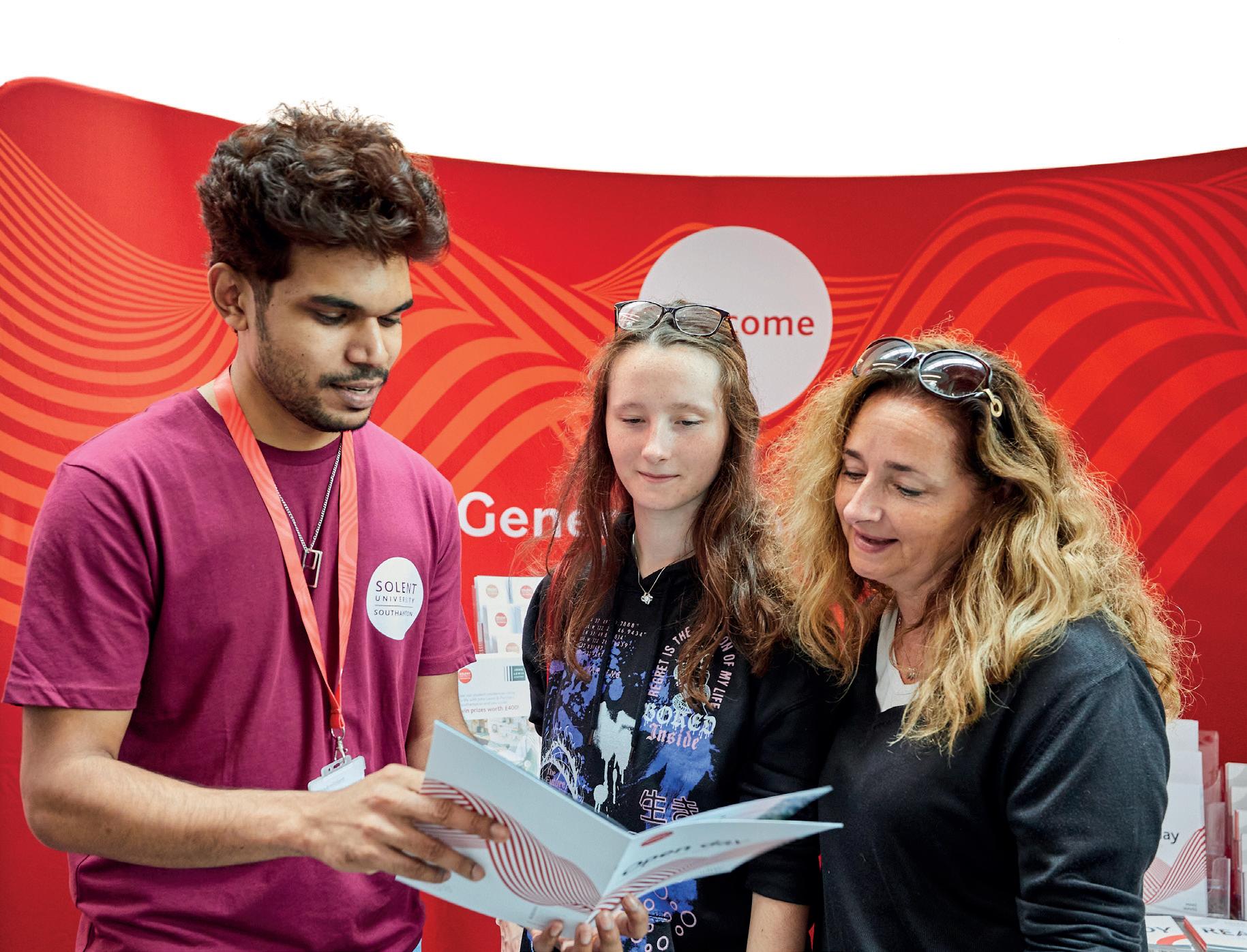



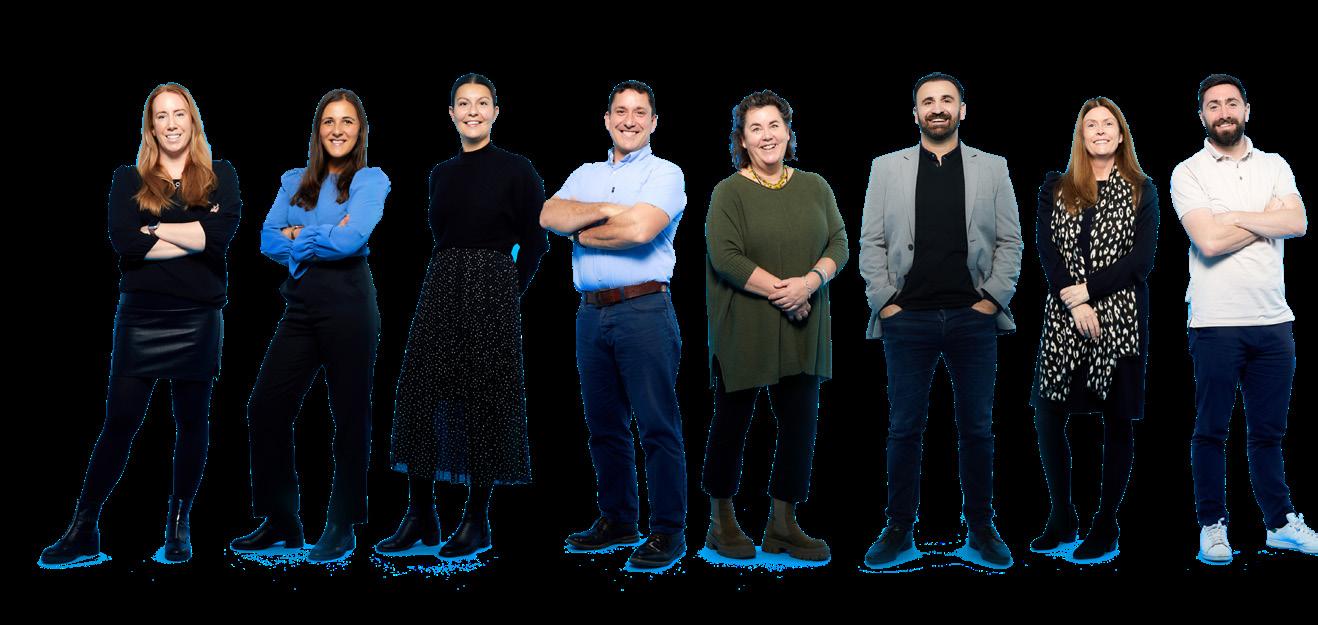

Skills Jersey, which includes Careers Guidance, Mentors, and the Skills Development Team, is part of the Children, Young People, Education and Skills Department. It is a centre of excellence with clear links connecting education and lifelong learners with industry.
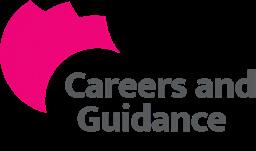
The Advice and Guidance team offer free, confidential and impartial careers guidance to people of all ages including school pupils, 16+ students and adults.

Working closely with schools, parents, employers, the government, and wider community to research, create, promote, and deliver a portfolio of skills development schemes and initiatives that meet the needs of the Island –now and in the future.

Mentoring service supporting young people within schools or transitioning out of school, people undertaking an apprenticeship and people who are upskilling with a programme of CPD or undertaking an accredited training course.
Skills Jersey is proud to be hosting Jersey’s Higher Education Fair for its 32nd year at The Royal Jersey Show Ground on Tuesday 12th March. This is an excellent opportunity for you to interact and connect with Higher Education representatives from over 35 universities from across the UK and further afield. Whether it’s about kickstarting research or refining choices, you can discover a future that’s right for you.

Schools will also be holding a range of inspirational talks from university representatives from the UK and abroad throughout the week. It’s the perfect opportunity to ask those burning questions that Google just can’t answer.

On the day, you can speak to the Student Finance team for advice on funding, plus specific queries such as deferring and gap years. Our Careers Guidance team will be available for general career advice, and our Trackers team if you’re thinking about a higher apprenticeship on-island.

For the very first time, and on a pilot basis we have extended the invite to companies offering both apprenticeships and bursary schemes, with the idea to give students maximum exposure to Higher Education opportunities

We look forward to welcoming you to this event and future Higher Education events.
Broaden your horizons in a place you really belong. Welcome to Liverpool Hope.


Book your place at one of our Summer Open Days.
In the Jersey Public Service we do the extraordinary every day, making a difference to Islanders’ lives. Our work touches the lives of all Islanders every minute of every day through different public services.
Our early in careers opportunities provide an enormous diversity of career options from medicine to marketing, engineering to building maintenance as well as policy, digital, IT, accounting and customer service, we can accommodate all interests.
The Apprenticeship and Traineeship programmes are the gateway to a rewarding career.
These programmes enable you to achieve a recognised professional qualification and gain valuable skills to train, develop and progress your career over a 1 to 4 year period.
Examples include Flora Leather who started her public service career as a Policy Intern and is now a Policy Apprentice. The world of policy ranges from electric car funding, new housing projects and changing legislation to protect women and girls from violence.
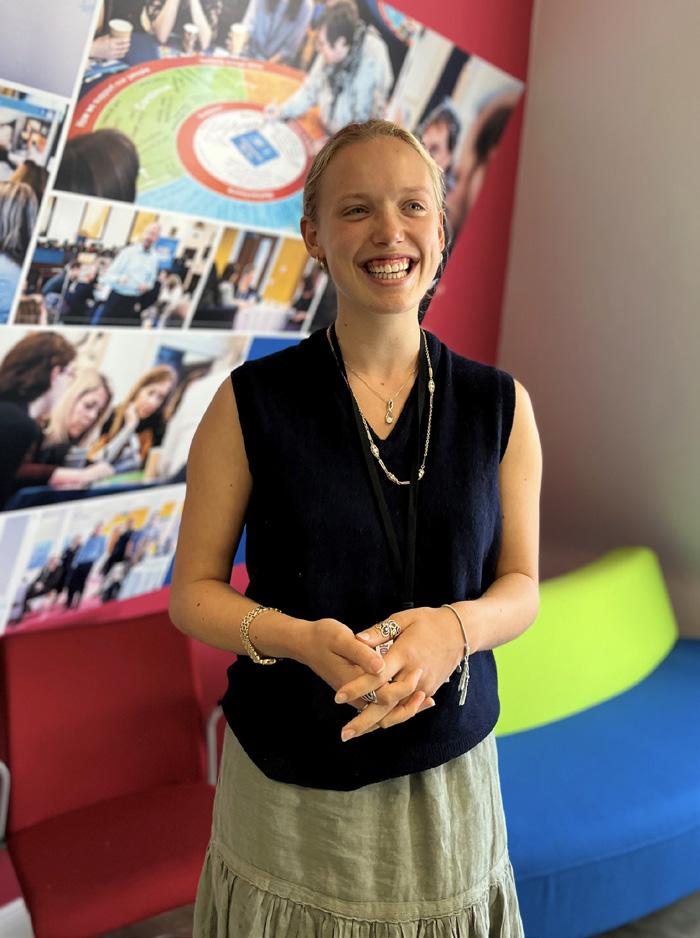
Kick start your career and earn while you learn.
Our internships are a paid period of work experience of six weeks during the summer and an opportunity for you to gain an insight into a particular area of the public service and valuable experience within your chosen field.
If you are studying at Highlands College or are at University and require a work placement or bursary to put your skills into practice, please get in touch to see how we can best support you via earlyincareers@gov.je
or click the QR code to visit learn more



In the Jersey Public Service we do the extraordinary every day, making a di erence to Islanders’ lives.
Find out more about our diversity of career development opportunities
earlyincareers.gov.je


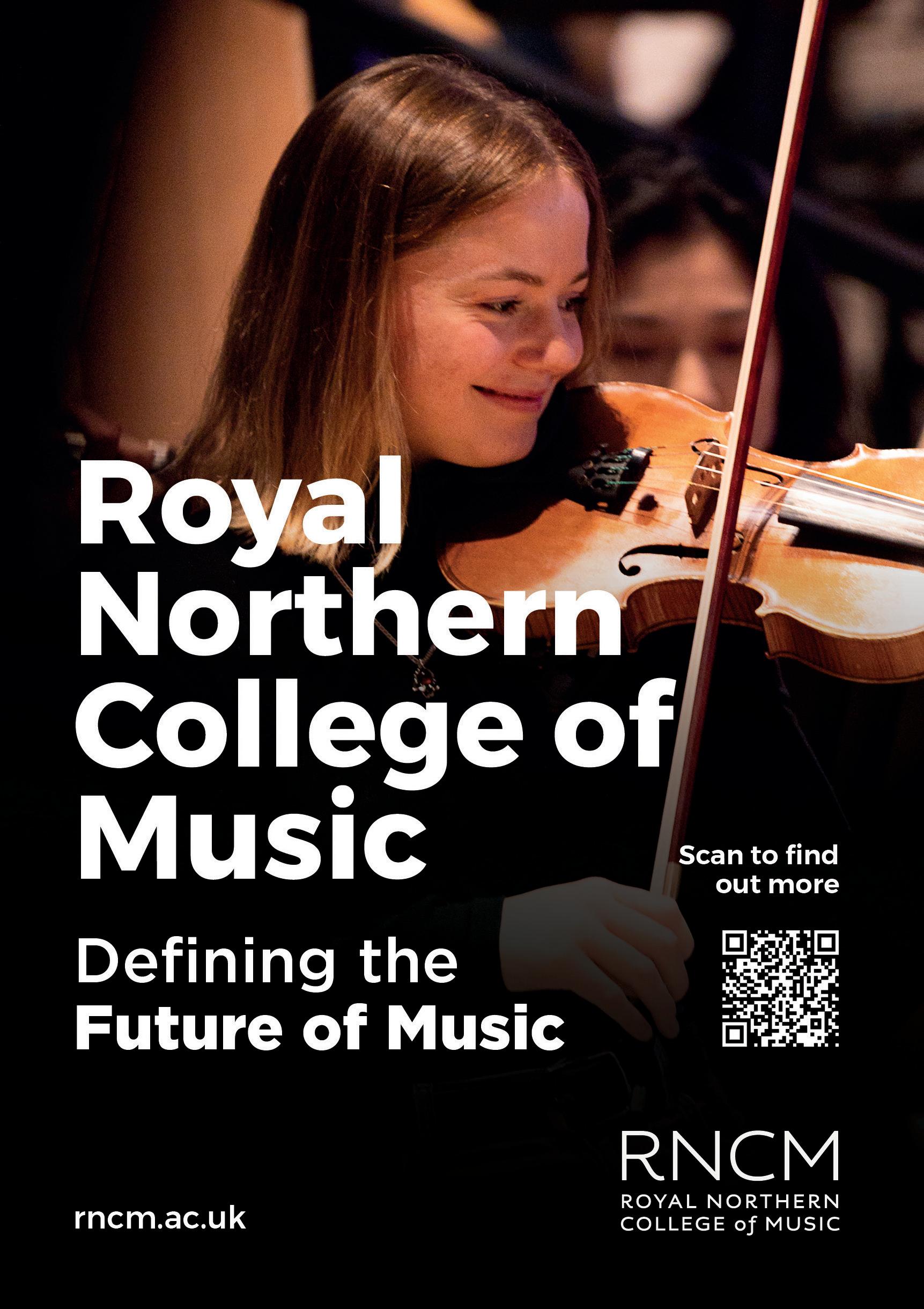
The aim of this guide is to help anyone interested in studying for a higher education qualification (whether in the UK, on-Island, distance learning (online) or elsewhere in the world), or looking into opportunities to study whilst in employment with the support of their employer.
In this guide we have compiled information on a wide range of options in order to help you with the important decisions you have ahead. We have included case studies from individuals that have already done their research, made their decisions and wanted to share their experiences of the process. This publication is a great place to start the process, but the key to making the right decision for you is research.
Whatever your age, whatever your situation, we’re here to help and if you require any advice on your options please contact Skills Jersey on 01534 449440 to arrange a free and impartial guidance appointment.


What's it all about? University isn't just about learning, the experience will also enrich your life. You will:
Increase your knowledge – study what you love, or what you’re interested in with top experts in their fields.
Get your first true taste of independence and freedom - build self-confidence, experience all aspects of student life, broaden your horizons, meet new people and gain a qualification that’s internationally recognised. UK higher education qualifications are recognised and respected by employers and academics worldwide.
Develop the essential skills you’ll need in your career and working life
– communication, organisation, timemanagement, team work, leadership, problem-solving.
Experience student life – yes, you’re expected to work hard but uni is also fun. Whatever your interests, there are a huge range of clubs, societies and a diverse social life on offer. 1
ucas.com/undergraduate/student-life/why-choose-higher-education

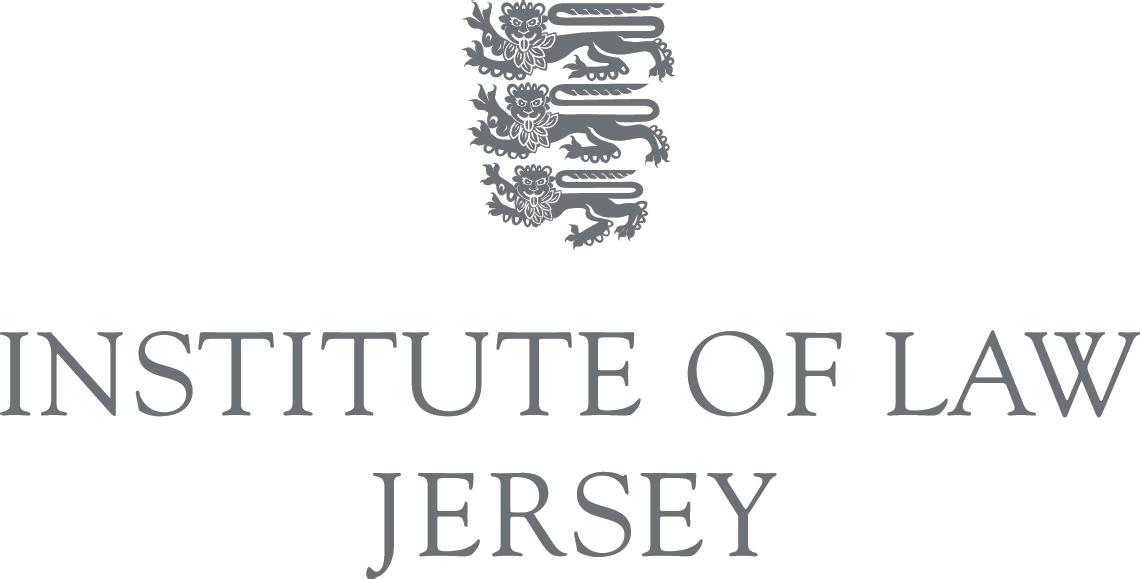
At the Institute of Law students study for the prestigious University of London LLB degree and the Certificate in Higher Education in Common Law, while also benefitting from a personalised learning experience.
We offer small classes, delivered by experienced law lecturers in a friendly and supportive environment, with tutors on hand to help every step of the way. Students have full access to the University of London online library resources to support their studies
Each student is given additional one-to-one support from a personal tutor, who acts as a single point of contact providing important help and guidance during the transition to higher education. We also offer the opportunity to gain practical experience through our close connections with the vibrant local practising community, via our mentoring and work experience schemes.
With part time and full-time options students have the unique opportunity not only to work in one of the world’s leading off-shore legal and financial centres, but also to earn while they learn to support their studies. The Institute has been providing legal education in Jersey for more than 15 years and offers the opportunity to obtain a prestigious UK degree without the need to leave the island.

We’re at the HE Fair on Tuesday 12 March between 10am and 6pm
Check our website for opportunities to visit winchester.ac.uk/opendays
Any queries, teachers and advisors can contact schoolsandcolleges@winchester.ac.uk
Alternatively you can directly contact Lucy lucy.dixon@winchester.ac.uk


When you become a Winchester student, you will have access to a rigorous and transformational education in a supportive, creative, and historic environment. You will be nurtured, encouraged, and challenged to grow as a confident and successful individual with the determination and resilience to be successful in your future career.

There is lots to do in the city of Winchester whether that is visiting one of our many pubs, coffee shops or restaurants or even enjoying the culture and history through visiting the Cathedral or watching performances at the annual arts festival ‘The Hat Fair’.
• Education and the Arts
• Humanities and Social Sciences
• Health and Wellbeing
• Law, Crime and Justice
• Business and Digital Technologies
Winchester Student Union has a wide variety of activity groups ranging from societies, sports teams, and representational networks!

Winchester has excellent transport links with a direct train service to London Waterloo (which takes around an hour) as well as train services to and from Southampton, Basingstoke, Bournemouth, Weymouth, Brighton, the New Forest, and the North of England. Southampton Airport is located just 15 minutes away by train and offers flights within the UK, the Channel Islands and mainland Europe!

Research Universities
•Consider your personal and professional goals and what’s important to you
•Check university websites
•UCAS, Discover Uni and other university websites can help you narrow down your choices
•Attend University Open Days
•University Summer School – try out uni for a few days


A level results day
Check your UCAS Hub from 8am. Your Conditional offers should change to Unconditional if grades are met. Your Conditional will go to Unsuccessful if grades are not met
If no offers are held or, you have changed your mind you can go through Clearing to find an alternative course

Jersey Higher Education Fair
A great opportunity to connect with universities in the UK; International and OnIsland.


Final application for all undergraduate courses. Applications received after this date ar entered into clearing
5 July 2024
IB results day / Clearing opens.
If you are a late applicant or do not hold a university place you can apply for an available course through Clearing.




Start to complete your UCAS application form online. Decide on your 5 choices. Find out when your school deadline is. It may be earlier that the UCAS deadline so your teachers can write your references.


Accept your “firm” and “insurance” offers Decline any other offers Make sure you complete accommodation applications for your “firm” choice if relevant


Deadline normally around 15/16 October for Oxford or Cambridge as well as for medicine; dentistry and veterinary courses.
Time to think about your personal statement. Currently 47 lines that sells your skills.

29 January 2025 is the UCAS Deadline for equal consideration for most undergraduate courses. Equal Consideration means course providers must consider all applications received by this time equally (UCAS.com)
This is where you can add an extra choice if you have used all five choices and do not hold an offer.
You may be invited to attend an interview.
If you are unable to attend in person contact the university to see if it can be held online.
You may receive conditional offers




If your results meet the entry requirements for your first choice university, congratulations. But don’t despair if they are not what you were expecting as there are options for you.
If you have at least one conditional place and you have met the requirements the offer will change to “unconditional”. This is confirmed in UCAS Hub and you will then receive details on what you need to do next either from UCAS or the university itself.
If you haven’t received the grades you wanted by just a few marks you should speak to the university and whilst they don’t have to
review their decision they may listen if you tell them, you will be appealing the grades. If you aren’t going to appeal you can accept it and go through the clearing process. You can also look at other options such as Apprenticeships, going straight into work or deferring your place for a year. This would also give you the chance to retake you’re A-levels if you feel you should have done better.
If your grades are better than you expected and you want to look at different universities with higher grade requirements you can easily do this through the clearing process.
To prepare for results day it is important that you are organised and have all the information you may need.
Things to have ready: -
•Charged mobile phone and charger.
•Notepad and pen.
•Details of conditional offers, university contact numbers, your UCAS number, universities’ UCAS and Clearing numbers.
•Notes from having researched universities and courses beforehand, with a list of questions to ask course tutors.
•Your personal statement and GCSE results.



Supporting your young person through the university application process can be exciting but also a little daunting as there is so much information out there. Here are some brief points to help you. For UK universities all applications are processed by UCAS - Universities and Colleges Admissions Service.


1.Register for a UCAS Hub Account
Registering for a UCAS Hub account is the first step. The hub is also where the UCAS application is completed.
2. Completing the UCAS Application
The UCAS “How to Apply” guide gives detailed instructions and helpful tips.
3. Additional Steps
If your young person is asked to attend an interview Skills Jersey Jersey can support with mock interview practice. Email: skillsjersey@gov.je
4. Replying to Offers
Your young person can accept two offers, one firm offer and one insurance choice.
5. Financial Preparation
It is advised to start the Student Finance process early to avoid any payment delays. 6.

Accommodation Planning
If offered a place start exploring accommodation soon after. Many universities will give Jersey students preference for a place in Halls of Residence.
7. Results Day
Advise your young person to check their UCAS Hub account where they will be notified of their next steps.
8. Clearing Scan QR code for a guide to Clearing

9. Moving to the UK
Our list of FAQ on Gov.je answers questions on Tax; Housing; Insurance; and Taking a car to the UK .
UCAS have dedicated web pages for Parents, Carers and Guardians. You may also find it helpful to sign up for the UCAS Parents Newsletter to ensure you don’t miss out on any key dates or information.

“A few years ago, whilst I was reading my bachelor’s degree, I had the opportunity to do an internship. That experience bowled me over and left a lasting impression of the great office culture which the firm has.”
Jordan Wiertek, Audit

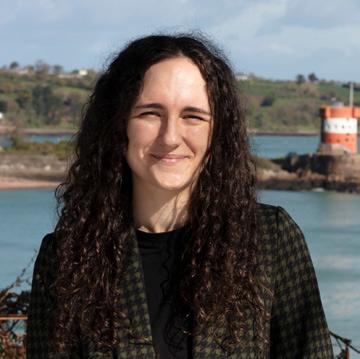

“At Grant Thornton there is a strong team culture, where collaboration, support, and open communication are encouraged.”
Malgorzata Sej, Tax




Grant Thornton are a leading professional services firm based in the Channel Islands offering careers in audit, tax and advisory. We have a combined staffing of over 240 people and are a Channel Island member firm of Grant Thornton International.
Being part of a dynamic global firm driven by independent thinkers, we provide high quality business advice to a wide range of clients.
We are looking for talented individuals who want to be part of something bigger by embarking on a professional career, where full support and career development will be provided.


Whether it is an internship to help you build valuable experience and explore your career options, or a current vacancy you are interested in, Grant Thornton can provide an opening to structured training and valuable on-the-job learning with the support of industry experts, a welcoming and collaborative team, and interesting projects with clients.
For more information on internships and/or current vacancies please visit our website: recruitment-grantthorntonci.com or contact
Sally Lesbirel on 01481 753420, or email us at recruitment@gt-ci.com.
Generally, universities require Level 3 qualifications and these are usually awarded UCAS Points. Examples of Level 3 qualifications include A-Levels, International Baccalaureate (IB), and BTEC Level 3 diplomas.
The list of recognised qualifications is vast however, the UCAS website gives you a full list of qualifications and more information on how the tariff works. Search ‘UCAS tariff points’ on ucas.com
You can check how many UCAS points your qualifications are worth by using the UCAS Tariff Points calculator. Just search ‘tariff calculator’ on ucas.com
Some universities may specify a number of UCAS points or grades required for a particular subject. If a university is asking for UCAS tariff points, it is important to check if there are any qualifications they will not accept. A university, for example, may ask for 112 UCAS tariff points but may add, “General Studies A-Level and AS qualifications will not be considered”.
The tables here shows UCAS points awarded for some of the most common Level 3 qualifications.
If you would like further information on routes into higher education you can contact Skills Jersey on 01534 449440 or email skillsjersey@gov.je
International Baccalaureate (IB)
To calculate tariff points for the IB, applicants now have to look at the points for each individual certificate (Certificate in Extended Essay, Certificates at Higher and Standard level and the Certificate in Theory of Knowledge) and then calculate a total by adding these together. It is also worth noting that the Creativity, Action, Service component does not attract tariff points. However, the experience and skills gained through this module are usually useful to write about in your personal statement.


We’ll get you career ready
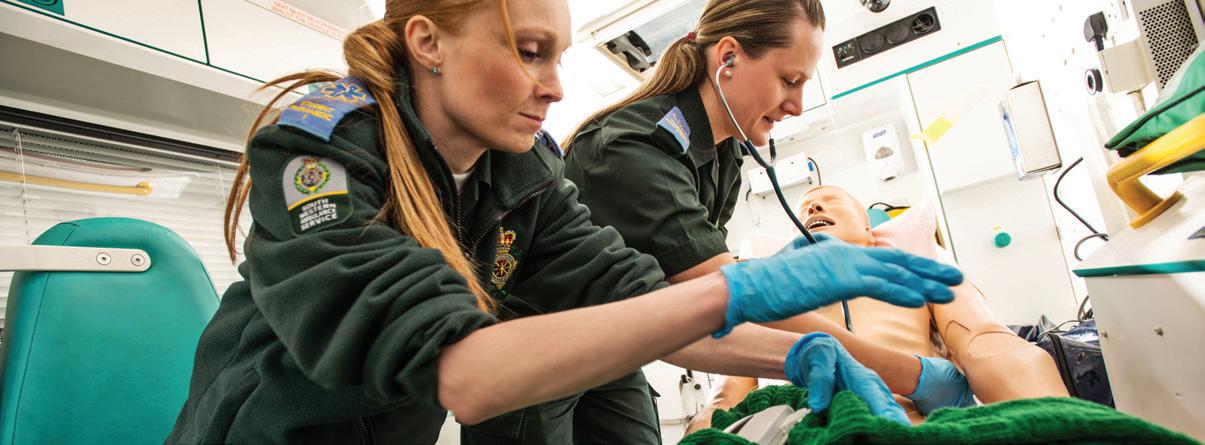
We’re ethically and environmentally responsible


Our research makes a difference

We’re

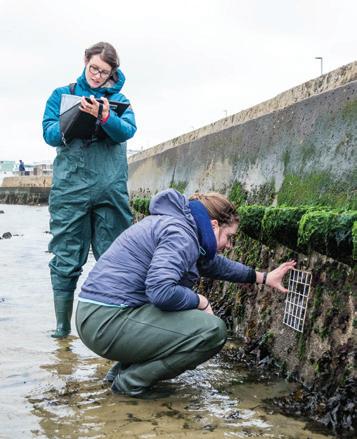
Are you ready to start your BU story?
Whether the change you want to make to the world is big or small, we can help you make it a reality. With a tailored experience that suits you, isn’t it time you discovered your degree of difference?
Our graduates recommend us


Crafting a personal statement can be tough, with the hardest part often being the beginning. If you’re having trouble, start by jotting down other relevant information first.
Discuss what interests you about the subject, where does this interest originate from? What do you hope to gain from studying the subject further?
Highlight activities related to your subject that you may have undertaken. This includes events attended; journals, relevant websites or other online material you have engaged with that will demonstrate your motivation.
Do you have any paid or voluntary experience in the area you are applying for. Reflect on what you have learned and link it to your course or career. This will show an understanding of the subject.
Reflect on your skills and experiences and relate them to your chosen course or career. Show that you’ve thought about how your experiences and education have prepared you.
End with a brief summary of what makes you a suitable student for the university. if you have a career in mind mention these here or, if you don’t simply say what you hope to gain from the course.
More advice and guidance on Personal Statements can be found at:





Higher education institutions vary enormously in size, tradition, location and facilities. Some are situated in city centres, some have their own campus sites and others are in very rural environments.
Prepare by following these simple steps:
1. List the factors that are important to you (remember this isn’t just about the course, include location, facilities, accommodation, services and the social, sporting or cultural activities available in your list of factors)
2. Prioritise this list – decide which order of importance these factors are to you
3. Research the universities
4. Compare each university to your ‘shopping list’ of important factors
5. Shortlist the universities that score highest on your ‘shopping list’
Once you have your shortlist:
University open days are a great opportunity to meet lecturers, visit campuses, see accommodation and check out the area. Living in Jersey often means attending open days can be difficult, but do not worry. If you’re planning a trip to the UK contact the university directly to arrange a convenient time to visit; chances are they will offer to show you around anyway.

But what if I can’t visit?
Information can be found on university websites. Take a look at virtual campus tours, digital prospectuses and online open days. If you have any specific questions regarding your course or accommodation then contact the university admission staff, who will be able to help you.
Visit our website for videos, contact details and further information on a range of universities.

• How many students study at the university and are on your course; do you want to be one of twenty or one of two hundred or more?
• Is the university based all in one area or is it spread out over a larger area such as a city?
• You will have to travel to lectures for at least three years so look into how far the commute is.
• High entry requirements do not always mean that this is the best course for you. These requirements can be influenced by other factors (e.g. the demand for the subject and the popularity of the university).
the course as thoroughly as you do the university. Prepare by following these simple steps to find out:
• What modules are taught on a course (this can vary greatly even for courses with the same name)
• How much contact time you will have with lecturers
• If the course is taught entirely by one faculty
• How the course is assessed
• If work experience is incorporated
• What the optional modules are
• What the teaching style is (module assignments, group work, examinations)

The UK is the most popular choice for Jersey students travelling off-Island to study a degree.
The UK higher education system is globally recognised as having strengths in its academic research and teaching quality. There are a wide range of universities offering a broad variety of subjects and thousands of different courses to choose from. UK degrees can often be tailored to meet your interests and can include specialised modules.
The UK government has a teaching excellence framework (TEF) for universities. This will allow students to make more informed decisions regarding their higher education choices and for universities to be held accountable for their fees.
UCAS is the central system through which all higher education applications are

submitted and processed and provides a structured, easy to use system with clear timescales for course applications. UCAS is a helpful source of information for you as a student as well as for parents/ guardians and schools and colleges.
For Jersey students, travel links to study in the UK are readily available, accessible and affordable, with relatively short travel times when compared to travelling to study further afield. Studying in the UK provides students with a familiar cultural way of life whilst having the benefit of studying with a wide variety of international students. Upon graduating the majority of UK universities have strong alumni connections, which can be helpful for networking and future job opportunities.

What do you most enjoy about university?
It is hard to pick just one! But the opportunity to meet like-minded individuals and make some amazing friends is an exciting part of going to university. Trying to navigate the university experience with others can create some great memories and lifelong friendships.
Why did you choose your university/ what attracted you to your university?
I really liked the Loughborough campus when I went to visit, it is a very studentfriendly and inspiring environment. You can also quickly sense the emphasis on sports and fitness which was appealing to me, and I would recommend anyone who shares these interests to consider Loughborough as a University. Loughborough University also ranks highly in multiple league tables, and this was an important factor for me when choosing a university.
After graduating from Loughborough university, I went on study a MSc in Diagnostic Radiography at Queen Margaret University in Edinburgh. The Queen Margaret university and campus is much smaller, however for my current level of study this suits me well as the teaching is more personal. QMU is a great university for many healthcare courses as they have connections with the local hospitals which provide great placement experiences.
What is the most challenging thing about attending university?
Personally, I found it quite challenging getting used to the different style of learning/teaching. There is a lot more independent research and reading which is expected at university that I wasn’t used to at school/college. However, in my experience there was plenty of support to help transition to this style of learning, particularly with guidance on how to access library resources.
What made you choose your course?
I choose to study human biology because I find learning about human anatomy and physiology really fascinating. The huge range and variety of topics covered was also very appealing and good to keep my prospective career options open. Ultimately, my degree in Human Biology allowed me to find the niche in healthcare which I want to pursue a career in, Diagnostic Radiography.
What surprised you most about university life?
I thought I would struggle living away from home more than I did. The first few months at university, although daunting, are incredibly busy and exciting and this really helps to get over any anxieties that you might have about moving to the mainland to study.
Any tips for students that are considering applying for university?
If you can, go and visit the universities that you are interested in. I found this really helped to get to know more about the university and course as well as the local area. It makes it a lot easier to judge which university will suit you best.



UNIVERSITY OF ESSEX

What do you most enjoy about university? How much it’s allowed me to grow. Doing everything yourself and being responsible for most aspects of my life so far at university has made me more mature and capable. The freedom is great as well, and it’s been so fun feeling like an adult at university.
Why did you choose your university/ what attracted you to your university?
A few reasons. It’s the only university in the country that offers the combined course I wanted, and that’s the main reason I chose it. Also, the campus is beautiful with lots of green space – this is something that was important to me when choosing a

university. Also, it places well on league tables, and this was important to me when applying as I wanted a university with high teaching quality.
What is the most challenging thing about attending university?
I would say having too much independence is quite hard sometimes. It’s difficult to self-motivate when there’s no one telling you to go to your lectures, do your food shop, or go and take your washing out the drier. However, I found that once I got into a routine this became much easier.
What made you choose your course?
I’ve always wanted to study journalism, since I was a young teenager, so that part was already set. I chose this specific course after looking at the modules, and the facilities, to make sure the university was the best choice. Also, I chose this
course as I had to the option to choose a year abroad in 3rd year, which really excited me.
What surprised you most about university life?
I think the thing that surprised me most is that you have to try to put yourself out there. – Even though it’s scary, it’s so much easier to make friends if you get yourself involved in societies, clubs, or even just by saying hi to your flatmates in the kitchen. University can be lonely at times, so it’s worth reaching out in the first few weeks to meet people.
Any tips for students that are considering applying for university?
When applying, consider lots of different universities, with different locations. Also, look at the league tables! They’re super helpful for choosing a university that’s best for your subject. When you’re doing your application, try to start early enough to give yourself time to change your mind – it’s a lot less stressful than doing it on results day, or right before the UCAS deadline in January.

Cupboard
Breakfast
A few examples of what you might consider making yourself
-Yogurt with Granola and Fruit
-Eggs and avocado on Bagel
-Banana-CerealsPancakes
-Seasoning...saltessentials and pepper
-Pasta/ rice/ noodles
-Tinned-StockTomatoes Cubes
-Tinned Soup, Beans, Tuna
- Sauce
-Olive oil
Dinner

-Stir Fry
-Pasta with Pesto/Tomato/Crème

-Fish, wedges, and peas
-Chilli Con Carne
-Posh beans on Toast
-Loaded Jacket Potato

-Omelette
-Cheese and Ham Toastie
-Chicken-Soupsalad pitta
-BLT wrap

Water
Keep a vigilant lookout for budget-friendly alternatives to popular brands, and watch your savings stack up.
You could almost halve your shopping bill!






(Heinz Bakes Beans)
£3.75 vs £1.75
(Asda Baked Beans)

(Chopped Tomatoes)
£1.00 vs £0.55
(Asda Chopped Tomatoes)

(Lurpak unsalted butter)
£2.15 vs £1.89
(Asda Unsalted Butter)
(Hartley’s Strawberry jam)
£1.50 vs £1.00
(Asda Strawberry Jam)


(Diet Coke)
£2.00 vs £0.65
(Asda Diet Cola)

Saving £2
45p
26p
50p
£1.35p

Studying in Europe provides different advantages to studying in the UK. It helps demonstrate you can adapt to a different culture and native language whilst being successful in your studies which is great when it comes to recruitment in the future. Here’s what they had to say....
1. What do I need to know about the European application process?
Each European country will have a different process, based on their local system. There are also private universities, some of which have their own admissions systems or which make use of UCAS, the US Common App or other systems to run
applications. You need to do your own research to understand how each system works – and don’t assume it will work like UCAS does.
2. Will certain countries’ degree frameworks suit my abilities more than others?
A European degree is usually quite similar to a UK one, with a focused degree on one or two subject areas. However, you will also find that there are often two types of universities: traditional, academic universities called ‘Research Universities’ and more modern universities, practical universities called ‘Universities of Applied Sciences’. Depending on how you like to learn best, you may find one is more suited to your abilities.
3. What are the differences within public EU universities about eligibility vs admissibility?
Public universities in the EU are designed to match the high school system of that country – which often have different curriculums to an A Level system. Typically it is more of a baccalaureate qualification like the IB Diploma with students taking more subjects in their last two years of school than in A Levels. Many countries require students to prove that they have taken the same range of subjects to become eligible, or else you would not be able to attend.
For example, whereas in the UK you normally don’t need to be taking Maths in the Sixth Form to study business at university, most European public universities would expect it. So you might have A*A*A* but not including Maths and be denied (due to being “ineligible”) while a student with CCC including Maths would get in.
4. Do Public EU Universities provide a residential campus experience?
A few will do so (such as the Dutch University Colleges) but many places will not. Students in the EU typically attend their local university and many will live at home – so you find that dorms, clubs, sports teams and similar activities are often not provided.
5. Are there any other things to consider i.e immigration permission, healthcare insurance etc?
You’ll want to research how much of the native language you will need to have in order to get by in daily life. Some countries will work very easily in English; others will not. For things like paying taxes, registering for a doctor and other things, you may need to follow local procedures that are not always explained in English.
6. Where to visit for the best information?
At www.theuniversityguys.com we have a lot of helpful information; it is also a good idea to use search tools such as Unifrog and Eunicas to start to narrow down options. Then, reach out to the universities you want to apply to for more information.



UNIVERSITY ESSENTIALS

HANGERS

DRESSING GOWN
DOORSTOP





It’s a big old world out there and when it comes to studying abroad there are many different options and arrangements for degree level study. If you have a sense of adventure, want to stand out from the crowd or desire to have a different educational experience, then studying abroad could be for you.
Studying in another country is a unique opportunity for you to experience and become part of a different culture whilst gaining a degree. However, higher education systems can vary between countries so you need to do your research before applying. Assessment methods and course structures also vary between countries. Some allow for much greater structural flexibility allowing students to choose classes from other subjects as part of their degree. This is different to a rather rigid British system and allows students to consider how they want to structure their degree or be assessed.
A period of time spent abroad has also become a valuable addition to the CV in today’s increasingly competitive graduate employment market and could help you to stand out from the crowd.
Term dates and application dates will be different in each country. Most countries do not have a central application system which means you have to apply directly to the university, often this means a quicker decision on an offer.
Visa applications can vary a great deal, so visit the specific government website for advice and details on how to apply for a student visa. Most countries wait until after you have been accepted onto a course before confirming your visa.
Higher education varies from country to country, it could be of benefit to compare different countries’ higher education provisions for a particular subject.

The courses offered on-island are all accredited by renowned UK universities and are fully recognised anywhere in the world.
Leaving the Island to study for a number of years does not suit everyone and, as such, a number of students choose to stay and study in Jersey. It usually costs less too with tuition fees being cheaper and the opportunity to live at home. Also, if you plan to have a career in Jersey then the work experience you undertake as part of your course can give you an excellent opportunity to network with Jersey professionals, making those allimportant contacts.
University College Jersey and The Institute of Law tell us about the advantages of studying on Island:
The University College Jersey experience is one of independence and autonomy in an adult learning environment. We have the largest body of Higher Education students on the island and have developed campus relationships with the Institute of Law and JICAS to deliver the true university experience. UCJ does however retain the college atmosphere where students feel valued and part of a caring and supportive community: it is this sense of community that sets us apart from offisland options. Maybe it is this balance that contributes to our 99% pass rate and the fact that 85% of our class of 2022 graduated with a 1st or 2:1 (National average is 70%).
Our degree programmes either include significant periods of work placement or allow for part-time study alongside existing employment. With our links to over 100 local businesses, charities, and schools, our students develop their skills and build professional networks from which to springboard into employment upon graduation. In fact, last year, 9/10 students had progressed onto employment or further study within 2 months of graduating. Additionally, lecturers are drawn from both industry and academia, which means that the learning is always current and relevant.
At the Institute of Law students study for the prestigious University of London LLB degree and the Certificate in Higher Education in Common Law , while also benefitting from a personalised learning experience. We offer small classes, delivered by experienced law lecturers in a friendly and supportive environment, with tutors on hand to help every step of the way. Students have full access to the University of London online library resources to support their studies.
Each student is given additional one-to-one support from a personal tutor, who acts as a single point of contact providing important help and guidance during the transition to higher education. We also offer the opportunity to gain practical experience through our close connections with the vibrant local practising community, via our mentoring and work experience opportunities.
With part time and full-time options students have the unique opportunity not only to work in one of the world’s leading off-shore legal and financial centres, but also to earn while they learn to support their studies. The Institute has been providing legal education on Jersey for more than 15 years and offers the opportunity to obtain a prestigious UK degree without the need to leave the island.
Adam joined the HIGHVERN team in 2022 after relocating from the UK to the Island. His professional journey with HIGHVERN began as a Trust Administrator, and he has since grown into his current role. Prior to that, he had worked in the aerospace industry after completion of his GCSEs.
Adam shares, “I always knew I wanted to work in an office environment, and trust administration intrigued me because of the client relationships and the variety it offers. Among all the interviews I attended, HIGHVERN stood out by taking the
time to explain how they would invest in my growth and future. I’m pleased to say this all proved to be true and I’m enjoying learning more and working my way up the ladder.”
As an award-winning provider of private wealth, corporate, and fund administration services, HIGHVERN sets new industry standards. The company prioritises employee well-being and career goals, a winning combination, reflecting the value of its greatest asset, it’s team and ensuring high rates of employee retention.

Learn more about a career at HIGHVERN by reaching out directly.

What do you most enjoy about studying on university on island?
I love being close to my family, and that majority of my friends have entered the workforce on the island straight away.
What attracted you to study on island?
I really like the idea that during my studies, I will undertake placements throughout the years in Jersey, making a name for myself and gaining insights into different job roles the island has to offer. I genuinely believe in Jersey; it's not just about what you know, but also about who you know. To make a significant impact, I wanted to get my foot in the door before others. I was also very attracted to the small class sizes, allowing for greater support both academically and personally, enabling tutors to get to know you. A key moment for me was when the university disclosed the high percentage of students leaving university with a job secured right away.
What is the most challenging aspect of studying on Island?
Probably the workload, which is challenging, and some subjects are more difficult than I had anticipated; however, it would be the same at any other university.
What made you choose your course?
As I mentioned before, the idea of being with family and friends was amazing. Additionally, staying on the island allowed me to continue earning money, affording me the opportunity to sustain my living expenses and further develop as a gymnastics coach.
What has surprised you most about your studies?
When a student provides feedback, the institution genuinely incorporates any suggested changes, and the tutors are highly supportive in addressing any issues and determining the best path for future development. Additionally, I appreciate the hands-on experience I gain in sports through practical activities.
What advice would you share with students that are considering applying to study on Island?
I would recommend attending all the university events on offer and within your grasp. This way, you can gain a comprehensive understanding of the course and create a pros and cons list to assess the advantages of staying on the island.



























As an independent, owner-managed fiduciary group, Fairway specialise in providing continuity to every client through a director-led, dedicated team.





We’re not just offering jobs; we’re shaping careers through tailored professional development, dedicated mentorship, and a culture that celebrates your individuality. At Fairway, we’re more than a workplace; we’re a community invested in your journey. Join us, where your ambition is not just welcomed; it's embraced.







Don’t just work somewhere, #belongatfairway






























When it comes to our careers, one size does not fit all. From legal, to corporate and fiduciary, to business services, Ogier is a professional services firm with a wide array of opportunities.
Law and finance are typically seen as very traditional professions. However, it’s not just the work that can shape your career. Alongside training and development, a firm’s commitment to its people, local communities, and the planet is playing an increasingly bigger role. This is why culture is so important.
At Ogier, we owe our success and future as a firm to each person who works with us. All of us have different needs and working styles. So, we focus on providing true flexibility in where and when you work to suit you, your team and your clients. People at every level of the firm and in every team benefit from our flexible ways of working.
Talking a good game is not enough – that’s why our people’s needs are central to our culture and policies. This is an important way of putting our commitment to diversity, equity and inclusion into practice. We challenge and empower all of our people to be bold about difference and brave about change. That extends from this day-to-day support for individuals to work in a way that suits their needs to the high level strategic work we’re doing to tackle our gender pay gap.
At Ogier, you will join a workforce with colleagues from all walks of life, and bring your own particular experiences, ambitions and requirements with you. We believe this uniqueness adds real value to our team. Excellent professional development opportunities are essential, but so too is a positive working environment where you can take full advantage of those opportunities.
We put a sustained focus on all elements of the equation so you can progress in an environment where you can thrive. From our legal trainee schemes to supporting qualifications through Chartered Institutes, we have a number of pathways to support individuals at different stages of their career – because one size does not fit all.
We believe in putting people first. It’s a principle we practice, with diversity, equity and inclusion ingrained within our decisionmaking and management. Do you want to join us?
Find out more at ogier.com/careers
Beijing
British Virgin Islands
Cayman Islands
Dubai
Guernsey
Hong Kong
Ireland
Jersey
London
Luxembourg
Shanghai
Singapore
Tokyo

Mourant is a law firm-led professional services business with over 60 years’ experience in the financial services sector, we have over 70 partners, 200 lawyers and 700 professionals worldwide. Our clients include many of the world’s leading financial institutions, corporations, public organisations, private equity houses and investment funds, as well as family offices.
• Legal Services:
Our lawyers advise on the laws of the British Virgin Islands, the Cayman Islands, Guernsey, Jersey and Luxembourg (via LexField). Our clients include many of the world’s leading financial institutions, corporations, public organisations, private equity houses and investment funds, as well as family offices. We routinely work in partnership with the most prestigious international legal and accountancy firms.
• Governance Services:
Mourant Governance Services delivers a comprehensive range of corporate, accounting, governance and fiduciary services through a dedicated team of experienced professionals in the Cayman Islands, Guernsey, Hong Kong, Jersey, Luxembourg (via FideField), Mauritius and London.
• Consulting Services:
Mourant Consulting is a global specialist consulting business, currently providing services in Jersey, Guernsey and the Cayman Islands. Clients appoint us to collaborate with them because we take a proactive, ‘prevent and detect’ approach to governance, risk and compliance matters that aims to inspire the confidence of the Regulator.
Mourant is supported by our market-leading business services teams collaborate globally across our service areas to deliver innovative solutions, drive efficiencies, and champion a natural team spirit across vital functions including Finance, Knowledge Management, Marketing, IT, HR, Learning & Development, and Risk & Compliance.


Our student bursary scheme is perfect for anyone who is already studying or about to embark university life and are looking to take their first step towards a career in law. We offer insight into a wide range of legal practice areas and a variety of clients, in an exciting, supportive and inclusive environment. In addition to support towards academic fees, we can also offer expert guidance, personal mentoring and professional resources to help guide development.
In addition to our bursary scheme, we also offer paid work experience within one of our legal practice groups, offering support and our expertise along with constructive feedback and career advice.
Alternatively, if you’d like to learn about a role in corporate and fiduciary services then our Governance Services Summer Scheme offers valuable insight over a two-week paid placement with us. You’ll gain an understanding of corporate and trust administration, accounting and governance services, plus operations and risk to help inform your future career decisions.
Whatever your choice, we’ll support you every step of the way. So come and join our diverse team of ambitious, enthusiastic and committed people and explore your future opportunities with us. Visit mourant.com/students/ or scan the QR code.
Follow us:
Have you ever considered working with a coach or mentor to achieve your learning and career goals?
Skills Jersey offers skills coaching and mentoring services for students, whether you are working and studying, studying part-time or a full-time undergraduate, on or off island.
We provide support in various areas such as balancing study and work, overcoming personal challenges, and connecting with employers for example, exploring internships and work experience opportunities in the island. Working with a mentor can offer a different perspective, guidance, and help in finding answers to challenges that may arise.
The mentors at Skills Jersey are experienced and qualified in working with young people and are dedicated to supporting individuals in achieving their learning and career aspirations.



CIVIL ENGINEERING HNC APPRENTICESHIP AT GEOMARINE UNIVERSITY COLLEGE JERSEY IN PARTNERSHIP WITH LONDON SOUTHBANK UNIVERSITY
What attracted you to doing a degree apprenticeship over a full-time degree? After completing my DEC A-level and BTEC in Construction, I was very interested in moving into Civil Engineering so I thought my best option was to go for my Bachelor’s whilst working with Geomarine. I believe the day release option is better as it allows me to earn money whilst getting firsthand experience in the field and not just theoretical experience.

What have been the highlights of your apprenticeship so far?
I have been able to learn a great deal of new skills through a variety of industry-experienced teachers, as well as applying and combining it with the work I’m doing with Geomarine. I really enjoyed working at the harbour putting in pontoons and wall guides which enabled me to apply what I’ve learned to the job itself.
What have you found most challenging?
Having to get used to work life, whilst being in a school environment; the juggle of fulltime work and study has been an adjustment.
How do feel having a mentor will help you during your apprenticeship?
Being able to communicate with someone who can provide valuable advice and information, as well as ongoing consistent support throughout the course, to help keep me motivated and generally a friendly face to check in with.
What would you say to someone who has never had a coach or mentor before?
A mentor is someone to go to, outside of work and family who is outside that loop, so they are impartial and can offer a different perspective. Someone that is always there and can help advocate for you, understand you and offer you a different way of looking at things.
What’s are your career aspirations for the future?
I want to complete my bachelor’s degree and get chartered into civil engineering.
Would you recommend the Civil Engineering Degree Apprenticeship?
Yes, I would. It’s a great opportunity to get into the construction industry whilst also having an interesting job that gives you many opportunities across a range of different topics.

What made you choose to start your career at KPMG?
I began my career at KPMG to seek a new challenge in accounting after completing my degree. As a prestigious big four firm, KPMG stood out for its strong emphasis on learning and development. This made it an ideal place to pursue my ICAEW qualification.
How has your trainee programme gone?
I recently passed my finals and have just been promoted to Assistant Manager, which at 25 is an amazing position to be in. I scored 94% in my recent Corporate Reporting exam, and KPMG’s support has been invaluable in helping me achieve that. The firm provides paid tuition, study leave, and time off for exams. They’re also very flexible with balancing work, study, and personal life.
What do you like most about working at KPMG?
The highlight of working at KPMG is the people. Our open plan office reflects our collaborative culture. From day one I’ve felt comfortable asking questions, and have built strong relationships with colleagues through working together in the office and socialising at our afterwork events.
What are your future career plans?
Looking ahead, I will seek more challenges! I’ll soon embark on a monthlong secondment to India, coaching junior colleagues. I’m excited for this next chapter and highly recommend KPMG to anyone thinking of starting their career in accounting or financial services.
Whether you’re a school leaver or university graduate, our 2024 trainee programme is one of the best choices you could make in your journey to become a qualified chartered accountant.
Join our team in audit, tax, or advisory - and you can:
earn a salary while studying towards your professional qualification advance quickly in your career

volunteer in your community up to 5 days a year
join a great work environment and make friends for life
receive a £1,000 starting bonus
Scan the QR code to find out more:

go on international secondment once fully qualified
What attracted you to a career in conveyancing?
I loved the idea of being able help people, especially through the biggest transaction they are ever likely to make. The thought of being able to work both inside and outside the office during site visits whilst exploring Jersey’s rich property history, was also appealing.
How has your career developed since being with Viberts?
My journey with Viberts has only just begun. After pursuing a career in opera and obtaining a BMus Hons undergraduate degree, I followed my interest in law to join Viberts as a trainee conveyancer in February 2023.
This role has provided me with invaluable experiences to acquire new skills - even learning to read old contracts in French! In October 2023, Viberts provided a significant opportunity to work at the Judicial Greffe for a 3 month secondment. Whilst there, I gained insight into what happens on the other side of Court, including stamp duty
concessions, calculations and creating Acts of Courts.
Now back at Viberts, I am eager to continue my conveyancing training with the team and looking forward to starting my studies towards the Solicitors Qualifying Examination (SQE) in April.
What 3 attributes do you need for your job?
Clear and effective written and spoken communication is essential for keeping clients, colleagues and legal professionals in the loop every step of the way.
Be inquisitive and have a good eye for detail. This is crucial when tracing a property’s title back to land, spotting important clauses in French contracts, drafting new contracts, and conducting site visits. The smallest detail can have a big impact on a transaction.
On site, you need precision when measuring boundaries and an interest in problem solving as the boundary stones aren’t always
where they should be. And, of course, you may need a pair of wellies!
What career tip would you give your younger self?
Don’t be afraid to change your career and challenge yourself. Follow your gut, work hard and be eager to learn new skills. Say ‘yes’ to opportunities that come your way. Finally, something I would always say to live by is our family motto: persevere.
Viberts is a full-service law firm dedicated to providing outstanding legal advice and client service, both in Jersey and internationally working across corporate, trusts, employment, litigation, private client, family and property law. Our people are vital to our business. Without them, we can’t help our clients achieve their goals or make their lives better. We’re always on the lookout for the next generation of talent with the right skills and, most importantly, a ‘can do’ and positive attitude.
To find out more about our Bursary scheme visit our website Bursary Scheme & Training Opportunities
viberts.com



If you are interested in studying a degree, but do not want to study it in the conventional way it may be worth looking at distance or blended learning degrees.
Distance learning involves studying a degree from a recognised university or college without physically attending the institution for the whole of the course.
Blended learning degrees involve a combination of online learning and face-to-face learning, and can give you the flexibility of distance learning, with some face-to-face learning of traditional degrees.
The amount of time you study at university and how that time is organised can vary for blended degree study e.g. one course may include blocks of study at the university and another may involve weekends throughout the course. It is important that you check this out before enrolling on a blended learning degree programme.
If you are considering studying your degree via a distance or blended learning programme, you should think about issues such as:
• How much face-to-face contact would I like to have with other students and tutors?
• If face-to-face study is part of the programme, what will the cost of travel/ accommodation be?
• Does the university provide accommodation if necessary or will I need to organise this?
• What support and resources does the university provide when I am studying from home?
• What resources/equipment will I need to provide, for example a quiet place to study, access to the internet and a laptop/ computer/tablet etc?
Government of Jersey’s student finance team assess and administer higher education applications for funding. We offer a grant for those wishing to study for a degree, be it on or off-Island.
Students can apply for this grant to help towards university fees and living costs. The grant is means-tested and the amount that you will receive is based on household income. We take into account parents and/ or their partner’s or student’s income, depending on the family situation.
January 2024
Application goes live gov.je/applyforstudentfinance
March 2024
Deadline for Income Statement
Forms to be sent to Student Finance
September / October 2024
University starts
March 2024
Deadline For Student Finance Income
Forms for the previous academic year
August 2024
Students are required to provide a copy of their unconditional offer letter or conformation of enrolment



Budgeting for university can be tough. It’s worth thinking about ways to make your money last longer for the whole year.
Here are some of our top tips:


















Don't forget to budget
Budgeting is key when it comes to keeping tabs on your money, so you know exactly what's coming in and going out.




Read the small print!



Before you go, start to budget whilst you’re at home so you will be in a better place when you start your course. Look at how much you are earning and what you spend each week or month. This will give you a good idea where you need to reduce your expenditure or maybe things that you think ‘do I really need that’. By doing this it will make the move to university a lot less stressful.
The UCAS website has some great resources on creating a budget and even has a budget calculator to give you a rough idea of what your key income and outgoings might look like. Search ‘managing money’ on www.ucas.com
Make your money go further
Getting an NUS card (now called a Totum card) is a must! It gives you access to loads of student discounts and deals from food and travel to clothes and plenty more.
www.totum.com

Check through the paperwork on things like your phone contract or bills as they may not provide the best deal. Especially when you arrive back on-island, you don’t want to be paying in excess for things like data.
One thing you may not realise, is that most students will need a TV licence. Check the UK’s TV Licencing website. Your university’s online forums may also have advice from previous students.
We have some fantastic trusts and bursaries available in Jersey that offer extra funding support for students. We highly recommend looking at ones that fit your course and applying for them! The bonus is that you can apply for these alongside your Student Finance funding.
A big benefit is that most providers will often offer extra support through work experience, career advice and future work opportunities. Just search for ‘trusts and bursaries’ on www.gov.je
Complete the table below of what items you would need to budget for and howvmuch you think you would need depending on how you would live?
Remember:
• Think about where you will be living (i.e. London will be more expensive for accommodation)
• For books and materials – think about what you will be studying (i.e. art students will spend more on materials)
Accommodation
Books and materials
University/local travel
Food
Clothing and laundry
Personal items
Socialising
Phone/mobile
TV license
Unexpected costs/healthcare
Utility bills (off campus only)
Other emergencies
Other Total
Other costs (non-weekly)
Travel home
Hairdresser
Clothes/ shoes

So what’s it to be? Traveling the world, volunteering abroad, or gaining work experience. A productive gap year can be valuable to many employers on your CV. Let’s explore some options!
Explore the world, discover new cultures, learn a new language, volunteer or join an internship aboard. All while boosting your CV. There’s a big world out there and...it’s waiting for you!
It’s worth considering taking a degree with a placement year if travelling aboard is what you want to do. Placement years normally take place in the 2nd or 3rd year of your degree, so this would mean not taking a gap year until 2024 or 2025. It also gives you the opportunity to work and study towards your degree, all whilst seeing another part of the world. Win, win!
Internships, work experience and volunteering
Unique, real-world experience from volunteering to interning sets you apart from other students. Plus, universities show preference to students who display commitment, passion, and perseverance to something bigger than themselves.
Why not try something new with a short course. Learn a language, how to program, take a cookery course or learn a new sport or instrument. Some gap providers will even offer skills development. So do your research.
There are also a wide range of online courses, many are free, where you can study at your own pace. There’s even
some from the world’s top universities! Check their websites to find out what’s on offer. It’s a great opportunity to add something different to talk about in your personal statement and university interview.
Save money for university
One advantage to working locally (or abroad) during your gap year is earning money that can be used to fund your life as a student. It’s a great way to give you a taste of being self-sufficient too.
A gap year is what you make it! A gap year can help you get into university, help you get a job, find yourself, or see the world. The gap year benefits are endless!
Search for ‘gap year’ on ucas.com for more inspiration!
Apply and defer?
If you’re planning a gap year you can still apply to university but defer your entry. This means you can still access the support provided by your school/college during the application process.
Confirming your place for the following year can take a huge weight off your shoulders whilst enjoying your gap year.

Plans change for many different reasons. If something doesn’t feel right it’s ok to change plans at any stage. It is really important to listen to yourself and speak up.
Our top tips:
• Don’t be afraid to talk through your ideas or thoughts – make sure you get advice from your careers teacher, Skills Jersey careers advisers, friends, family or employers.
• Make sure you know all options available to you. There is always a solution.
To be eligible for funding from Student Finance there are residency requirements you need to meet. If planning on travelling, please contact the Student Finance to ensure you will still meet this criteria.
• Worried about Student Finance? Whatever your situation, support and advice is on offer from Student Finance on last minute changes.
What made you consider taking a gap year?
My main reason was my financial situation, I needed to work for at least 1-2 years before going to university to be able to save enough money, with help from my family. However, getting work experience in the industry I want to go in to after university was also important to me, especially with film/TV being such a competitive industry. Getting an idea of a realistic type of job I could get with my degree would help me be sure it was the right option for me, as well as looking good on my cv.
How did you spend your gap year?
I took part in the Government of Jersey summer internship programme which led me to start my gap year working at The Studio on an extended 6-month contract. I’m intending to work freelance for The Studio for the remainder of my gap year and am potentially able to do further freelance work for other companies.
How do you feel you benefited from taking a year out?
The time I have spent so far has been invaluable, I have learnt so much in just a few months. At first, I believed I may feel left behind whilst everyone else was at university meeting new people and developing new skills. However, to my surprise it hasn’t felt like that at all, I’ve met some incredible people through the internship and further work I’ve been doing. The opportunities I’ve had have both given me a head start in my career by helping me develop the skills I will need in my degree
but has challenged me to become more independent and confident being apart from my friends at uni.
Any tips for students that are considering taking a gap year?
Firstly, if you’re planning on doing anything relevant to your course during the first few months of your gap year, that you think would be beneficial to include in your university application, I would hold off applying with the rest of your class and apply with the next cohort. Writing about what you have done could help make your application stand out showing your enthusiasm and dedication to the subject you’re intending to study. I would also say try to make the most of this time, meet new people, try new things. Just because you haven’t gone straight to university doesn’t mean you have to miss out on the excitement that comes with it like meeting new people and doing new things.

We are committed to supporting our staff at every stage of their professional development. Our Solicitors Training Programme provides excellent opportunities to take your first steps into the legal profession.
We will sponsor you to complete your Solicitors Qualifying Exam (SQE) studies and provide you with the qualifying work experience you need by developing your skills in both contentious and noncontentious areas of law. Once qualified you will join one of our highly regarded legal teams.
Applications for 2024 are now open. For more information and to apply, visit careyolsen.com/careers
BIGGER PICTURE



Match the individual to the correct course and job





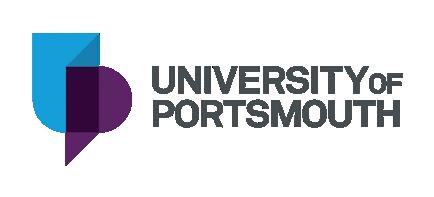

Nestled in the heart of the Hampshire countryside, University Centre Sparsholt is a leading provider of a range of undergraduate and postgraduate degree courses. With over 600 animals at the Animal Health and Welfare Research Centre, over 60 horses at the Equine Centre and a working farm across our 183 hectare campus, it is certainly an exciting place to study, grow and explore on your doorstep!

• Access to Higher Education
• Agriculture
• Animal Science and Zoo Biology
• Equestrian Science and Performance Management
• Fisheries, Aquaculture and Marine Studies
• Higher Apprenticeships - NEW
• Veterinary Nursing Science
• Wildlife Ecology and Conservation
Join us at an open event to discover more sparsholt.ac.uk/university-centre
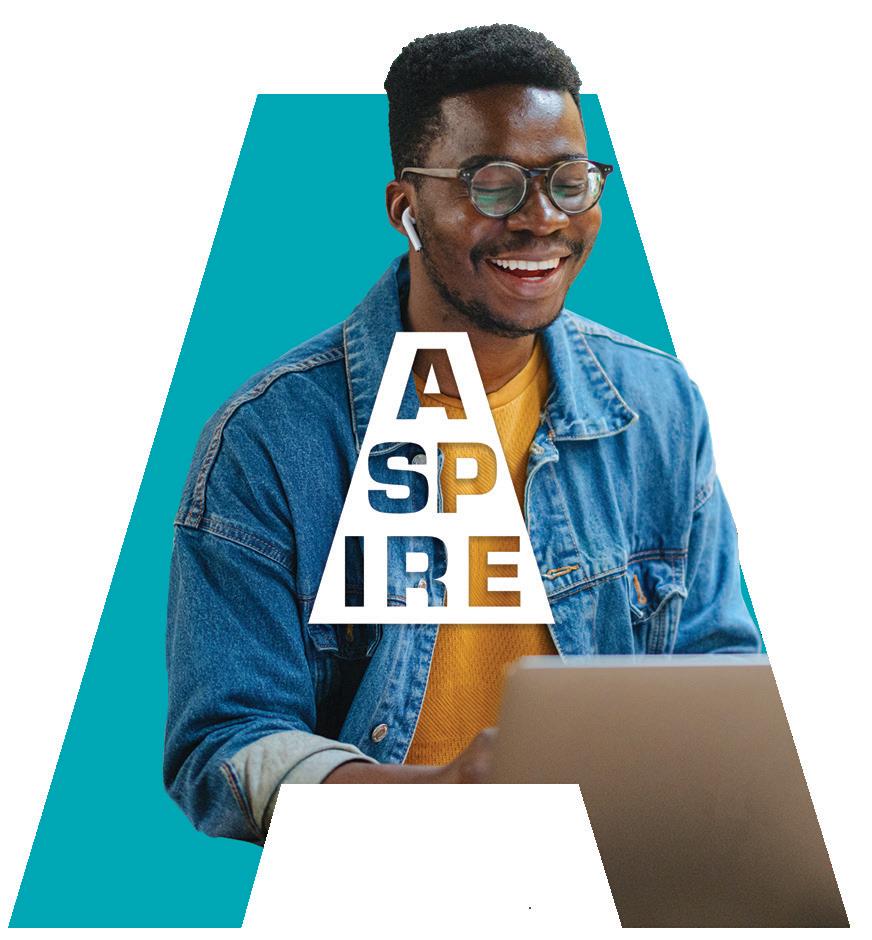
Aztec Group specialises in fund and corporate services and we are on the lookout for school-leavers and graduates to join our dedicated trainee programme in administration, accountancy and group function roles.
Explore: aztec.group/students
Thrive in a passionate culture, celebrate success within a unified team and feel supported throughout your career journey.
